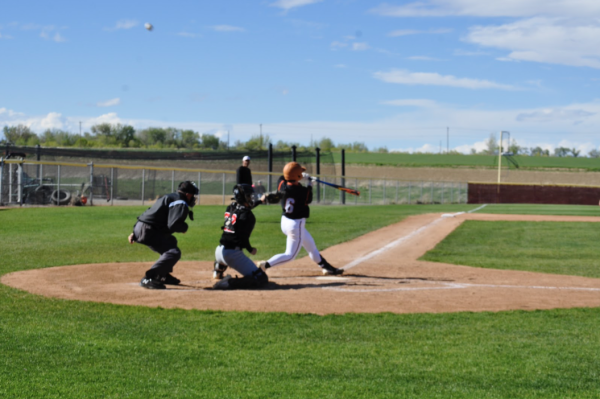Online learning days are unnecessary and detrimental to student productivity (Editorial)
Online learning, especially during inclement weather, disrupts chances for student rest and health
Snow days are now being replaced by online learning, but that shouldn’t be the case.
Editorials are articles written by a publication’s editors to express a shared opinion or discuss a topic editors think needs more attention. These articles are meant to persuade readers and to promote critical thinking while sometimes encouraging people to take action.
For students, it has felt like an ongoing battle to bring traditional snow days back. When inclement weather conditions arise, students are no longer excited for the snowfall — they don’t have anything to look forward to. Nowadays, they will sit inside looking at a screen during required online learning.
In the event of inclement weather, SVVSD institutes “a shortened online learning schedule. During these closures to in-person learning, students… receive synchronous direct instruction on a shortened schedule, with additional asynchronous time to complete assignments”.
According to the Colorado Department of Education, schools must have 360 hours of “teacher-pupil instruction and teacher-pupil contact per semester” for that school to receive full time funding. This checks out to about 52 days of learning, so a little break from school wouldn’t hurt anyone. 160 days of student contact days are also required which pans out to 80 days per semester. This gives schools plenty of allotted time to teach and still allow for breaks, like snow days. SVVSD high schools have 84 contact days during fall semester and 90 contact days during spring semester.
But why do students want this kind of break from learning? Days without online learning allow for more sleep, time to process stress, and exercise. Most teens get only 6.5-7.5 hours of sleep at night according to Better Health Channel, yet the CDC advises kids this age to sleep for eight to ten hours. Snow days without online learning allow students to sleep in and for their bodies to heal.
Like any other person, teens feel the stress of this constantly moving world. A study by the Washington Post found that students will spend 2.7 hours on homework each weeknight. An informal survey conducted by Bellaire High School in Texas “of approximately 200 students revealed that some students spend over three times this number”. This amount of time, plus the approximate added weekly 16.5 hours of students working their jobs on average, leaves kids with no time to just be and experience some time to themselves.
Mead High gets out at 2:45. Let’s say that it takes 15 minutes to get home from school. That means with time spent at work and doing homework, students will be busy from 3 to about 9 p.m. at night. Then in an hour or so, it’s time for bed. A snow day without online learning would allow for students to breathe and take a break from the stress of constantly hustling.
Sometimes, if teens still have that childlike wonder, they’ll go out in the snow with family, friends, or for “me time.” Being out in the snow can be a great source of cardio and strength exercise, whether that be activities or just shoveling your driveway. According to Intermountain Healthcare, shoveling can burn over 400 calories an hour, and simply having fun in the snow can burn about 250-350 an hour. Sitting at a desk and drying out your eyes with a screen won’t do that.
Online learning during inclement learning days also encourages lazy learning where students don’t feel productive or focused enough to even pay attention during online classes. Students don’t have anyone to help them refocus, and many students set up their learning devices in their rooms for quiet. Some will even sit in bed during this time, but beds are associated with rest and “can interfere with our ability to concentrate and learn”.
It’s not uncommon to hear students share anti-inclement weather day sentiments. Some say these days are “pointless”, “unproductive”, “unnecessary”, and are put in place to “fill time”.
Students — or anyone for that matter — benefit from breaks from the daily tumult and hustling going on around them.
Online learning days are clearly unneeded and should be eliminated.
Your donation will support the student journalists of Mead High School. Your contribution will allow us to purchase equipment and cover our annual website hosting costs.
















